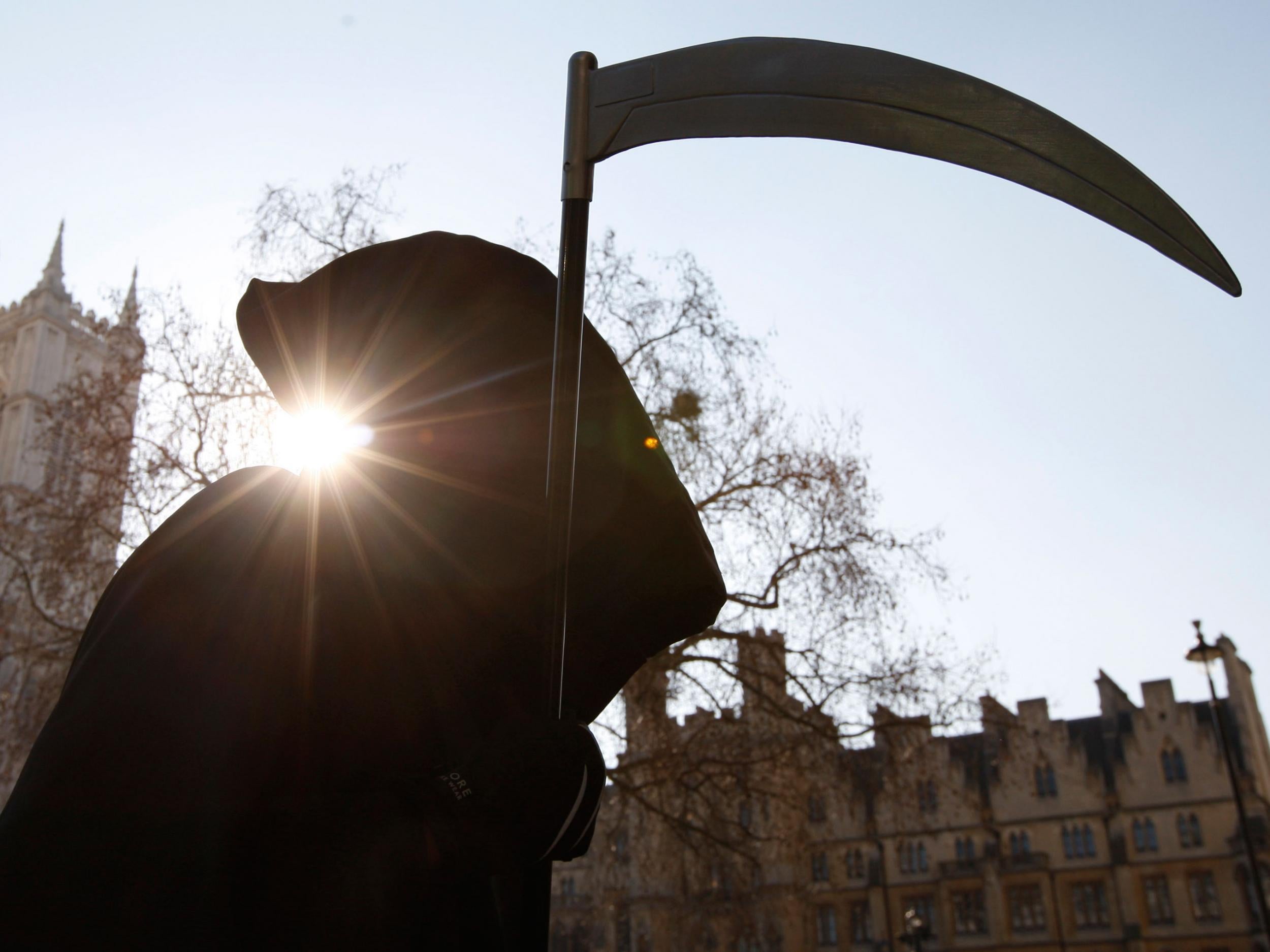Are they dead yet? Experts come together to define the exact moment we die
It should be 'as easy and accepted as placing a stethoscope on a deceased patient’s chest to search for a heartbeat and breath that will never come', but it's not

Only two things are certain in life: death and taxes. Or so we thought.
For, while it might be everyone’s ultimate fate, establishing whether someone has actually ceased to be is a source of some uncertainty, according to world-leading experts on the subject.
Now they are gathering for the Euroanaesthesia congress in Geneva in the hope of coming up with a once-and-for-all answer.
Different cultures around the world define death in different ways. In modern medicine, the concept of “brain death” or death by neurological criteria, known as DNC, was introduced 40 years ago, but doctors have different ideas of what this means.
Professor Giuseppe Citerio, an expert in anaesthesia and intensive care at the Milano Bicocca University, said: “Many of the controversies that surround the determination of death by DNC have not been settled and this [meeting] presents an opportunity for future research and education to clarify outstanding issues in order to reduce professional and public disquiet.
“A first step has been international guideline development for the determination of death, supported by the World Health Organisation, but other steps are needed.
“There is broad consensus, at least in the Western world, that human death is ultimately death of the brain, but debate continues over the way to demonstrate the ceasing of brain functions to satisfy a definition of DNC.
“Confusingly DNC can be legally defined in different countries in two different ways based on 'whole' brain and 'brainstem' criteria.”
The brainstem consists of three parts: the midbrain, pons and medulla oblongata and connects the rest of the brain with the spinal cord.
Absence of brainstem reflexes, including the capacity to breathe, is often used to determine whether the patient has died.
But some countries, including Italy, require brain scans which can detect electrical activity in the rest of the brain before doctors are allowed to declare death.
This dispute over the definition has led to some interesting questions.
For example, doctors in an intensive care unit in Canada reported that patients’ brains had been continuing to work after they had been declared clinically dead in accordance with the usual procedure, including the absence of a pulse and unreactive pupils. Brain scans, however, showed similar activity to deep sleep had continued for more than 10 minutes.
Was this evidence of life after death, simply a sign of electricity slowly draining out of the body or were the patients not actually dead at all?
At the Geneva meeting on 3 to 5 June, Professor Citerio plans to argue that brainstem death means actual death as it is responsible for consciousness, breathing and the circulation of the blood.
He will call for the international community to establish a universal definition of DNC and a universal way to diagnose it.
“Critical care physicians must unite with other professional colleagues and public policymakers to engage local communities and national governments in DNC-related issues,” Professor Citerio said.
“Only in this way will it be possible to achieve equivalence of DNC and cardiorespiratory death in the minds of the public and professionals.”
And, citing an “eloquent” remark by American neurologist Dr Panayiotis Varelas, he added: “The time has come when the determination of DNC should be as easy and accepted as placing a stethoscope on a deceased patient’s chest to search for a heartbeat and breath that will never come.”
Join our commenting forum
Join thought-provoking conversations, follow other Independent readers and see their replies
Comments
Bookmark popover
Removed from bookmarks